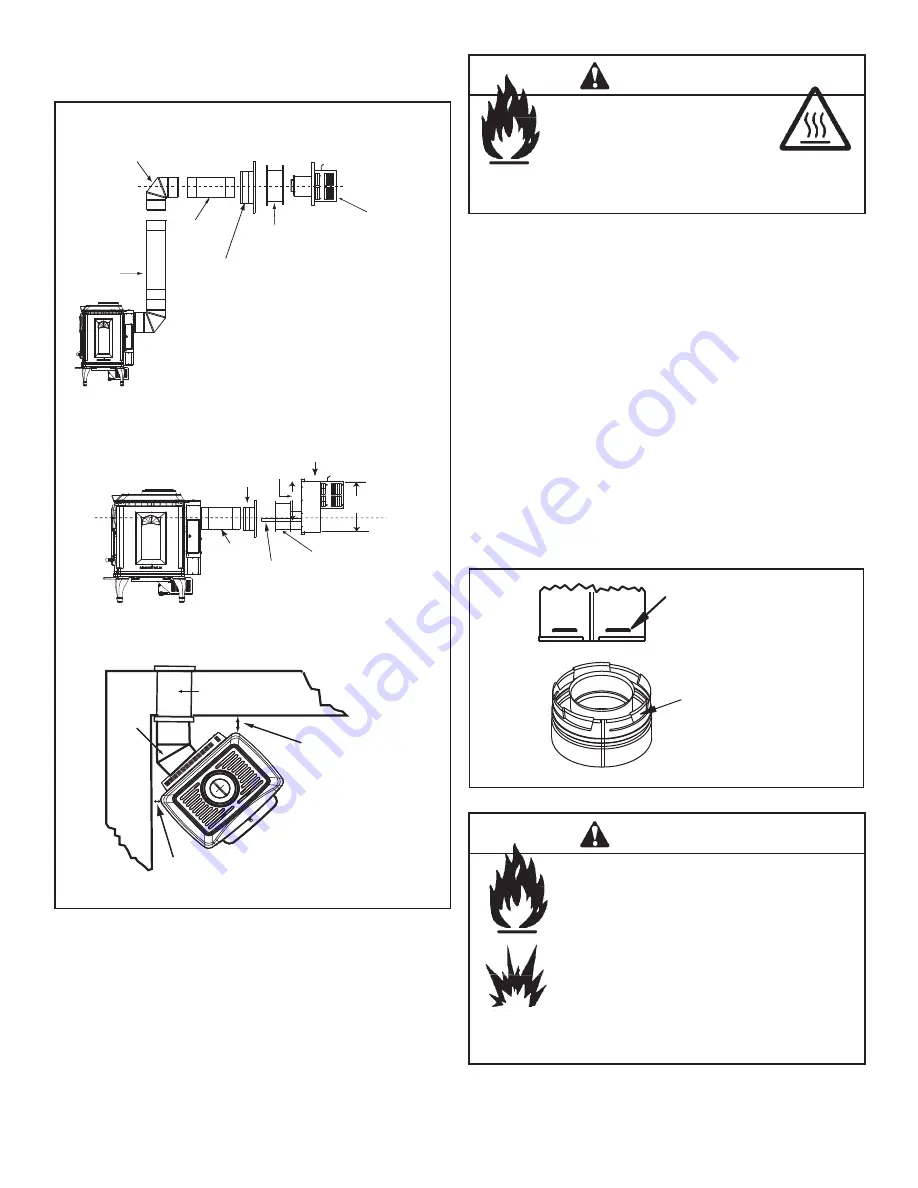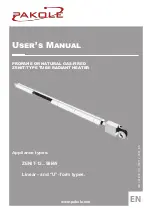
12
Heat & Glo • TIARA II-B • 7011-148 Rev. G • 10/12
Step 1.
Determine the desired location of the appliance. Check to
ensure that wall studs or roof rafters are not in the way when
the venting system is being planned. If this is the case, you
may want to adjust the location of the appliance.
F. Horizontal Termination
Figure 5.3
Step 2.
Direct vent pipe is designed with a locking connection. To
connect the venting system to the appliance flue outlet, a
twist-lock adapter is built into the appliance at the factory.
Wall thickness may vary. Remember to include wall
thickness in minimum clearances when figuring venting
lengths for your installation needs.
Note
: Female ends of direct vent pipe/elbows are
designed to slide straight onto the male ends of adjacent
pipes by orienting the pipe indentations so they match and
slide into the entry slots on the male ends, see
Figure 5.4
.
Push the pipe sections completely together, then twist-lock
one section clockwise approximately one-quarter turn, until
the two sections are fully locked. The female locking lugs
may not be visible from the outside. They may be located
by examining the inside of the female ends.
Type A - Up & Out Installation
Type C - 45° Elbow in Corner Installation
Type B - Straight Out Installation
45° Elbow
3/8 in. (10mm) Clearance from
stove corner to combustible wall.
3/8 in. (10mm)
Clearance from
stove corner to
combustible wall
(for valve access
on side).
Wall Thimble/Heat Shield
WALL THIMBLE/
HEAT SHIELD
WALL THIMBLE COVER
PIPE LENGTH
PIPE LENGTH
TERMINATION CAP
CENTER LINE
90° ELBOW
CENTER
LINE
WALL THIMBLE COVER
PIPE LENGTH
SNORKEL KIT
WALL STRAP 14 in. (356mm) Wide
WALL THIMBLE / HEAT SHIELD
15-5/8 in.
(397mm)
21 in.
(533mm)
Fire Risk.
Exhaust Fume Risk.
Impaired Performance of Appliance.
WARNING
• Ensure vent components are locked together correctly.
• Pipe may separate if not properly joined.
Female Locking Lugs
Male Locking Lugs
Figure 5.4
Fire Risk.
Explosion Risk.
Combustion Fume Risk.
Use vent run supports per installation instructions.
Connect vent sections per installation instructions.
• Maintain all clearances to combustibles.
• Do NOT allow vent to sag below connection
point to appliance.
• Maintain specifi ed slope (if required).
WARNING
Improper support may allow vent to sag or separate.













































